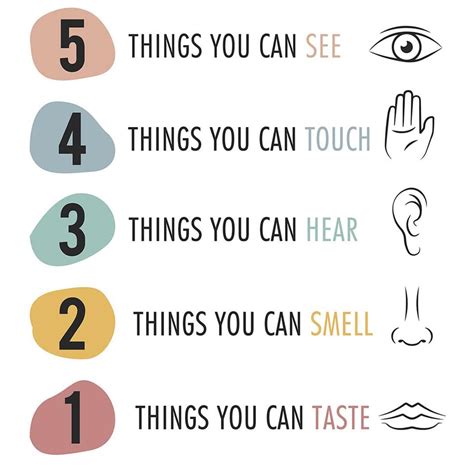
When preparing for guests, homeowners should focus on addressing immediately noticeable areas like cleanliness, odors, and visible clutter, while often overlooking things such as the brand of cleaning products or the contents of drawers, according to a recent survey.
Preparing your home for guests involves more than just a quick tidy-up. According to a new survey, guests quickly notice certain aspects of your living space while completely overlooking others. Understanding these priorities can help hosts focus their efforts on what truly matters, creating a welcoming and comfortable environment.
The survey highlights that guests are most attuned to cleanliness, smells, and overall tidiness. “People notice the obvious things,” says home organization expert Janelle Cohen. These include dust, pet odors, and cluttered surfaces. A sparkling clean bathroom, fresh-smelling air, and an absence of visible clutter are key to making a positive first impression. Conversely, the survey indicates that guests rarely pay attention to details like the specific brands of cleaning products used, the organization inside drawers or cabinets, or the thread count of linens.
The Top 10 Things Guests Immediately Notice:
- Cleanliness: This is paramount. Guests universally notice dust, grime, and overall cleanliness (or lack thereof) in all areas of the house, but particularly in bathrooms and kitchens. As Cohen emphasizes, neglecting cleanliness can lead to negative judgments.
- Odors: Unpleasant smells, especially pet odors, are a significant deterrent. Air fresheners, candles, and thorough cleaning can help create a welcoming atmosphere. Addressing the source of the odor is crucial for a lasting solution.
- Clutter: Visible clutter creates a sense of chaos and disorganization. Clearing surfaces, organizing belongings, and creating open space are essential for a calm and inviting environment.
- Bathroom Condition: The state of the bathroom is a major indicator of overall home hygiene. A clean toilet, sink, and shower are non-negotiable. Towels should be fresh and readily available.
- Kitchen Cleanliness: Similar to the bathroom, the kitchen’s cleanliness reflects the homeowner’s standards. Dirty dishes, sticky countertops, and a grimy stovetop are major turn-offs.
- Entryway Appearance: The entryway is the first impression point. A clean and welcoming entryway sets the tone for the rest of the visit. Make sure it is tidy, well-lit, and free of obstructions.
- Lighting: Adequate lighting is essential for creating a comfortable and inviting atmosphere. Dim lighting can make a space feel dingy, while overly bright lighting can be harsh. Consider using a combination of natural and artificial light.
- Temperature: Maintaining a comfortable temperature is crucial for guest comfort. Adjust the thermostat to suit the preferences of your guests.
- Furniture Arrangement: A well-arranged space encourages conversation and relaxation. Ensure that furniture is arranged in a way that is both functional and aesthetically pleasing.
- Overall Ambiance: This encompasses the overall feeling of the home. Factors such as décor, color scheme, and personal touches contribute to the overall ambiance. Aim for a welcoming and comfortable environment that reflects your personal style.
The 5 Things Guests Totally Ignore:
- Brand of Cleaning Products: Guests are unlikely to scrutinize the specific brands of cleaning products you use. Focus on achieving cleanliness, regardless of the brand.
- Linen Thread Count: While fresh linens are appreciated, guests are unlikely to notice the thread count. Comfortable and clean linens are more important than luxurious ones.
- Contents of Drawers/Cabinets: Guests generally do not snoop through drawers or cabinets. Focus on organizing visible areas rather than worrying about hidden clutter.
- Age of Appliances: Minor cosmetic imperfections or the age of appliances are typically overlooked. Functionality and cleanliness are more important than having the latest models.
- Specific Décor Style: While a cohesive décor style is appreciated, guests are unlikely to judge your personal taste. Focus on creating a comfortable and welcoming environment that reflects your personality.
Digging Deeper: The Psychology Behind Guest Perception
The survey findings touch on fundamental aspects of human psychology related to perception and judgment. Guests subconsciously evaluate the host’s attention to detail and care for their living space. Cleanliness and orderliness are often associated with responsibility, consideration, and respect for others. Conversely, visible dirt and clutter can create a negative impression, suggesting neglect or lack of consideration.
The things guests don’t notice reveal that people are generally forgiving and understanding. Minor imperfections and personal preferences are often overlooked, as long as the overall environment is clean, comfortable, and welcoming. This suggests that hosts can prioritize their efforts on the most impactful areas without stressing over minor details.
Expert Advice: Focusing Your Pre-Guest Prep
Home organization experts emphasize the importance of prioritizing tasks when preparing for guests. Cohen advises focusing on the “high-impact” areas first. These include cleaning bathrooms and kitchens, decluttering visible surfaces, and addressing any unpleasant odors. Once these essentials are taken care of, hosts can move on to less critical tasks, such as refreshing linens or rearranging furniture.
Another key piece of advice is to “stage” your home for guests. This involves creating a welcoming and inviting atmosphere by adding personal touches, such as fresh flowers, scented candles, or comfortable throws. Staging can help create a positive first impression and make guests feel more comfortable and relaxed.
The Importance of a Welcoming Atmosphere
Ultimately, preparing your home for guests is about creating a welcoming and comfortable atmosphere. It is about showing consideration for your guests and making them feel at ease in your home. By focusing on the areas that guests immediately notice and overlooking the minor details that they typically ignore, you can create a positive and memorable experience for everyone.
A welcoming atmosphere extends beyond the physical appearance of the home. It also includes the host’s attitude and behavior. Being friendly, attentive, and accommodating can make a significant difference in how guests perceive their visit.
Practical Tips for Pre-Guest Preparation:
- Start Early: Don’t wait until the last minute to start preparing for guests. Begin cleaning and decluttering several days in advance to avoid feeling overwhelmed.
- Make a Checklist: Create a checklist of tasks to ensure that you don’t forget anything important. Prioritize the most impactful tasks, such as cleaning bathrooms and kitchens.
- Focus on High-Traffic Areas: Pay special attention to high-traffic areas, such as the entryway, living room, and dining room. These are the areas that guests are most likely to see and spend time in.
- Declutter Visible Surfaces: Clear off countertops, tables, and shelves to create a sense of order and spaciousness.
- Freshen Up Linens: Wash and change bed linens and towels to ensure that they are clean and fresh.
- Address Odors: Eliminate any unpleasant odors by cleaning, airing out the house, and using air fresheners or scented candles.
- Provide Amenities: Make sure that guests have access to basic amenities, such as toiletries, towels, and Wi-Fi.
- Create a Welcoming Atmosphere: Add personal touches, such as fresh flowers, scented candles, or comfortable throws, to create a warm and inviting environment.
- Relax and Enjoy: Once you have prepared your home, relax and enjoy the company of your guests. Your attitude and behavior will play a significant role in their overall experience.
The Evolution of Hospitality: From Formality to Comfort
Historically, preparing for guests often involved elaborate displays of formality and perfection. Homes were meticulously cleaned, meals were carefully planned, and guests were treated with utmost deference. While these traditions still hold value, modern hospitality places a greater emphasis on comfort, authenticity, and creating a relaxed environment.
Today’s guests are more likely to appreciate a comfortable and welcoming atmosphere than a perfectly staged home. They value genuine connection and authentic experiences over rigid adherence to tradition. This shift in perspective allows hosts to focus on creating a space where guests feel comfortable being themselves and enjoying the company of their hosts.
The Role of Technology in Modern Hospitality
Technology has also played a significant role in shaping modern hospitality. Online platforms such as Airbnb have made it easier for people to open their homes to guests, creating new opportunities for cultural exchange and connection. Technology also allows hosts to communicate with guests more efficiently, providing them with information and assistance throughout their stay.
Smart home technology can further enhance the guest experience by providing automated lighting, temperature control, and entertainment options. While these technologies can add convenience and comfort, it is important to prioritize human connection and genuine hospitality.
The Cultural Nuances of Hospitality
Hospitality practices vary across cultures. What is considered polite and welcoming in one culture may be perceived differently in another. Understanding these cultural nuances is essential for creating a positive experience for guests from diverse backgrounds.
For example, in some cultures, it is customary to offer guests gifts or small tokens of appreciation. In others, it is considered more appropriate to focus on providing excellent service and hospitality. Being mindful of these cultural differences can help hosts avoid misunderstandings and create a welcoming environment for all guests.
The Long-Term Benefits of Good Hospitality
Practicing good hospitality can have long-term benefits for both hosts and guests. For hosts, it can strengthen relationships, build community, and create positive memories. For guests, it can provide a sense of belonging, relaxation, and enjoyment.
Creating a welcoming and comfortable environment is an investment in building meaningful connections and fostering a sense of community. By focusing on the areas that guests immediately notice and overlooking the minor details that they typically ignore, hosts can create a positive and memorable experience for everyone.
The Impact of Social Media on Hospitality Expectations
Social media has undeniably heightened expectations regarding home aesthetics and hospitality. Platforms like Instagram and Pinterest showcase perfectly styled homes, leading some guests to anticipate similar levels of visual appeal. While it’s not necessary (nor realistic) to replicate these curated images, being mindful of the impression your home conveys online can be helpful. Consider tidying up areas visible in video calls and ensuring your home’s online presence aligns with the actual experience guests will have. This transparency builds trust and manages expectations, fostering a more positive interaction. Furthermore, social media allows guests to share their experiences, both good and bad. This public feedback loop emphasizes the importance of addressing guest concerns promptly and striving for excellence in hospitality.
The Sustainable Hospitality Movement
As environmental awareness grows, sustainable hospitality is gaining traction. Guests are increasingly valuing eco-friendly practices, such as using sustainable cleaning products, reducing waste, and conserving energy. Hosts can demonstrate their commitment to sustainability by implementing these practices and communicating them to their guests. This not only benefits the environment but also enhances the guest experience by aligning with their values. Small changes, such as providing reusable water bottles, offering organic and locally sourced food options, and using energy-efficient appliances, can make a significant difference.
The Psychology of Color and Décor
The colors and décor choices in a home can have a profound impact on guests’ emotional state. Warm colors like reds and oranges can create a sense of energy and excitement, while cool colors like blues and greens can promote relaxation and tranquility. Neutral colors like whites and grays can create a sense of calm and sophistication. When choosing colors and décor, consider the overall mood you want to create and how it will affect your guests. Incorporating natural elements, such as plants and wood, can also enhance the feeling of comfort and well-being.
The Importance of Personal Touches
While cleanliness and orderliness are essential, adding personal touches can make guests feel more welcome and appreciated. This could include displaying family photos, showcasing artwork, or sharing personal stories. These small gestures can help create a sense of connection and make guests feel like they are more than just visitors. Consider leaving a handwritten welcome note, offering a personalized gift, or sharing a favorite local restaurant recommendation. These thoughtful gestures can leave a lasting positive impression.
Creating a Sensory Experience
Hospitality extends beyond visual appeal to encompass all five senses. Consider the sounds, smells, tastes, and textures that guests will experience in your home. Playing soft music, lighting scented candles, offering delicious food and drinks, and providing comfortable linens can all contribute to a positive sensory experience. Pay attention to details such as the softness of the towels, the aroma of the coffee, and the temperature of the room. By creating a harmonious sensory environment, you can enhance the overall feeling of comfort and relaxation.
Addressing Accessibility Needs
When preparing for guests, it’s essential to consider accessibility needs. This could include providing ramps for wheelchairs, installing grab bars in bathrooms, or offering alternative communication methods for guests with hearing or vision impairments. Making your home accessible to all guests demonstrates inclusivity and consideration. Communicating with guests in advance about their specific needs can help you prepare appropriately and ensure their comfort.
The Art of Conversation and Connection
Ultimately, the most important aspect of hospitality is the human connection. Engaging in meaningful conversations, sharing stories, and showing genuine interest in your guests can create a lasting positive impression. Put away your phone, be present in the moment, and focus on building relationships. Ask open-ended questions, listen attentively, and share your own experiences. The quality of the interaction will often outweigh the perfection of the physical environment.
The Future of Hospitality: Personalized and Authentic Experiences
The future of hospitality is likely to be even more personalized and authentic. Guests will increasingly seek unique and memorable experiences that reflect their individual interests and values. Hosts will need to be adaptable and responsive to these evolving expectations, offering customized services and creating a truly immersive experience. This could include providing personalized recommendations for local attractions, offering customized meal plans, or creating themed events tailored to guests’ interests.
By embracing these trends and focusing on creating genuine connections, hosts can ensure that their guests have a positive and memorable experience that will keep them coming back for more.
The Importance of Continuous Improvement
Hospitality is a continuous learning process. Soliciting feedback from guests, reflecting on your own experiences, and staying up-to-date on industry trends can help you improve your hosting skills and create even more positive experiences for your guests. Ask guests for constructive criticism, and be open to making changes based on their feedback. Continuously striving for improvement demonstrates a commitment to excellence and a desire to provide the best possible experience for your guests.
FAQ: Preparing Your Home for Guests
- What is the most important thing guests notice when they enter a home? According to the survey, cleanliness is paramount. Dust, grime, and overall cleanliness (or lack thereof) in all areas of the house, but particularly in bathrooms and kitchens, are quickly noticed. As Cohen emphasizes, neglecting cleanliness can lead to negative judgments.
- How important is it to eliminate odors before guests arrive? It’s very important. Unpleasant smells, especially pet odors, are a significant deterrent. Air fresheners, candles, and thorough cleaning can help create a welcoming atmosphere. Addressing the source of the odor is crucial for a lasting solution.
- Do guests really care about the brand of cleaning products I use? No, guests are unlikely to scrutinize the specific brands of cleaning products you use. Focus on achieving cleanliness, regardless of the brand.
- What’s the best way to create a welcoming atmosphere? Adding personal touches, such as fresh flowers, scented candles, or comfortable throws, can create a warm and inviting environment. Consider creating a sensory experience with soft music and delicious food.
- What if I can’t get everything perfect before guests arrive? Don’t stress over minor details. Focus on the high-impact areas, such as cleanliness and clutter, and remember that genuine hospitality and a welcoming attitude are the most important factors. Building human connection during conversations and sharing stories can create a lasting positive impression.









